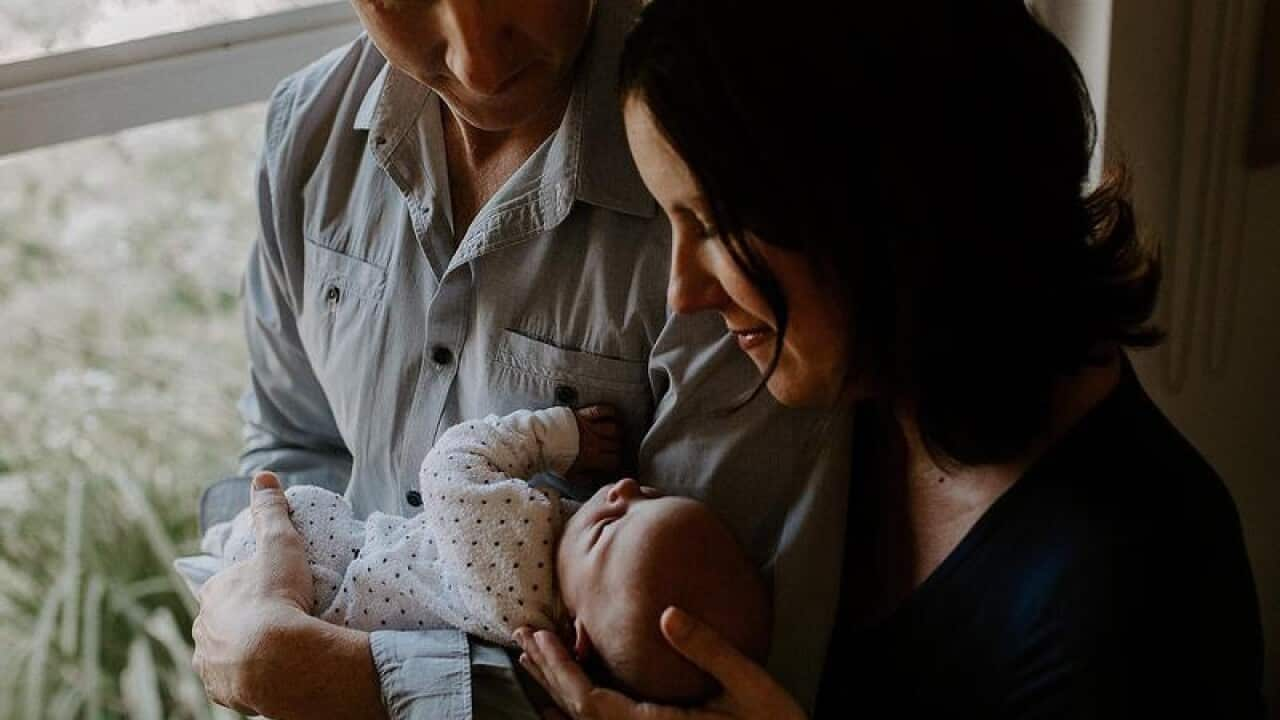A new mental health checklist designed for mums and dads has been launched in a bid to help struggling Australian parents work out whether they have perinatal anxiety or depression.
The online tool has been designed because health workers in contact with expecting and new parents are not always picking up signs of perinatal anxiety and depression, which affects expecting or new mums (one in five) and dads (one in 10), according to the national helpline, Perinatal Anxiety and Depression Australia (PANDA).
"It's very hard to know what's normal when you're pregnant or you've had a baby," says PANDA CEO Terri Smith.
Although all expecting mothers should be screened by health workers using the Edinburgh Postnatal Depression Scale, Ms Smith says the helpline hears from many women who have never taken the test or have slipped through the cracks despite their results.
In addition, the standard screening tool only picks up depression, not anxiety, she said.
The checklist, launched on Monday, asks questions about changes expecting and new parents have noticed in their behaviours, feelings and relationships.
While it does not diagnose mental health conditions, it can be used as an indicator for parents who can download the report and take it to a health professional and start a conversation about seeking help.
"When the depression or anxiety is connected to being pregnant or having a baby, the pressure is enormous," Ms Smith told AAP.
"That extra degree of pressure makes it really hard ... women feel the need to hide what's going on for them."
Queensland mum Carly Grubb says she felt ashamed to admit, even to herself, she had post-natal depression when her first baby arrived in April 2014.
"I was definitely of the opinion back then it meant you didn't like your baby, which is entirely untrue," the 36-year-old told AAP.
The mother-of-three, who lives in a rural town in north western Queensland, said sought help for her "extreme" exhaustion following the birth of her son, but health professionals did not pick up her depression and instead focused on sleep issues.
"I focused so heavily on my exhaustion when I went to seek help, but in reality that was masking a lot," she said.
"There was no depth to the care, there was no talk about the quality of my relationships or how to build my self esteem as a mother."
After seeking help and recovering, Ms Grubb knew the red flags for depression when they appeared following the birth of her third in July this year.
In the weeks after an emergency surgery to remove her appendix nine days post-partum, Ms Grubb felt "flat as a tack" and was constantly angry and snapping, despite getting more sleep with the third newborn.
Now, on short-term medication for depression due to chemical imbalances, the Queensland mum said she felt amazed at the difference.
"I didn't lose so much time with my baby, feeling miserable and beating myself up.
"I'm a happy person who got sick, and that's all there is to it."
PANDA 1300 726 306
Lifeline 13 11 14
beyondblue 1300 22 4636

